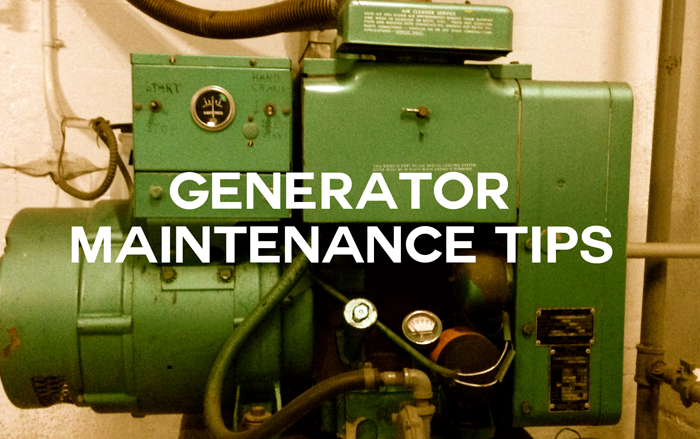A Little Known Fact About Generator Maintenance
By on Oct 18 2013

As winter approaches those that live in cold climates face the possibility of downed power lines from the ice and snow. Generators of all sizes are being used throughout the season for prime or continuous power supplies. When it comes to picking out the proper generator for your emergency needs this is one of those situations where size does matter. Undersizing a generator can damage the unit itself and the items connected to it. It is also important to be cognizant of all of the service and maintenance requirements of your unit, which will extend the life of your generator and ensure reliable power when you need it most. A point often overlooked when taking care of this seasonal item is the importance of oil and fluid filter changes. As your prep your unit this fall for the coming deep freeze make sure you are running clean oil and have a new clean filter.
A common misconception is that it is good to start your engine every once and a while and get it up to running temperature over periods of low usage. The fact is that you do not want to get it up to full temperature and here is the reason why. When you run your engine at full temperature, which is around 212 degrees and then power it down, the metal cools creating condensation. The more something is heated the more it has to cool down and the more condensation will sit on the top of your engine components creating issues. During seasonal or daily use this is not a big deal. Water builds up in your engine on a regular basis and this happens when you come home every night and shut of your car. Cold air enters your still hot engine and the water condenses. The next day you drive again. Your engine temperature will rise above 212 degrees, which is the boiling point of water and in turn evaporation takes care of any condensation build. Now think of this situation: It is late spring and you have not used your generator since a bad winter storm 6 weeks ago. You think you are doing the right thing by starting and running the unit for 30 minutes also thinking that you are preventing water build up. The problem is that a brief amount of time like 30 minutes is not enough to cook off the condensation. Instead by running the engine and warming it up you are drawing in new condensation during your cool down period. The best thing you can do is instead sporadically start your generator for 2 minutes, which is just enough time to lubricate the engine with a fresh coat of oil covering the metal surfaces and preventing rust and corrosion. This short running period does not leave enough time to reach a high engine temperature which would contribute to further condensation build up. Engine oil is meant to handle a certain amount of condensation, but the last thing that you want to do is introduce more condensation to components due to heating the engine and cooling it back down. Metal and water parts do not work well together so in the end if there is too much condensation in different areas of the engine then you will experience rust, oxidation, and corrosion of vital engine parts leading to potential unit failure.
If you are just beginning to think about purchasing a generator make sure to consult a certified electrical contractor to calculate your power requirement as a baseline. It is also vitally important to make sure you use the proper engine oil. The type of power that your unit runs on either gasoline, compressed gas, or diesel will affect the type of engine oil in the unit. It is always best to refer to the operating manual for the appropriate recommendations. Most importantly, be careful when using your generator and refer to this helpful safety guide from the Red Cross (click here) for other useful tips.
We are happy to provide you "A Petroleum Service"
If you found this article useful and would like to join the discussion please comment below.
From the team of experts at The PSC Online Store.






